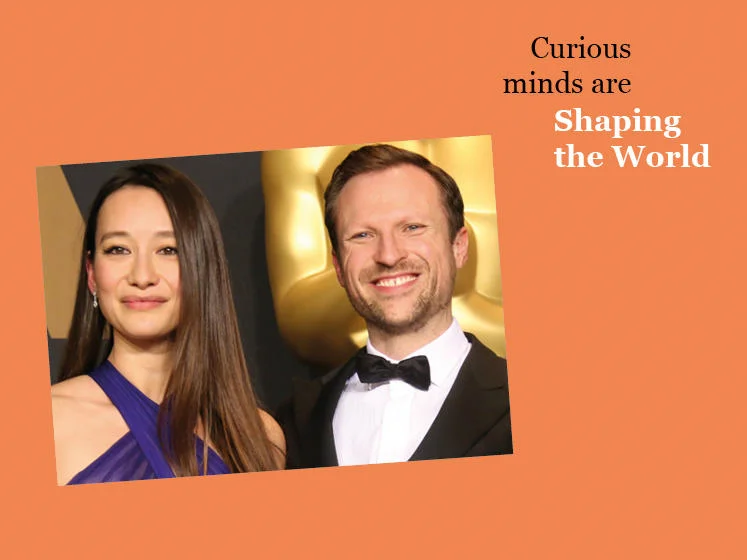Orlando von Einsiedel and Joanna Natasegara
MSc Anthropology and Development 2004-09 & MSc Human Rights 2005

The paths of Orlando von Einsiedel and Joanna Natasegara didn’t cross while they were postgraduate students at LSE during the 2000s; instead their introduction came by chance.
Orlando was working on his 2014 film Virungafor about a year and was put in touch with Joanna to fill a gap in production. Joanna also became impact producer for the film, ensuring that the focus was on not only telling the story of Virunga National Park’s heroic rangers in the Democratic Republic of Congo, but also protecting a UNESCO World Heritage site from oil exploration and holding a British oil company to account for their activities in the area. The campaign was focused on engaging the public as well as industry and investors, to put pressure on the company to stop their activity.
After the success of Virunga, Joanna and Orlando embarked together on a new project: The White Helmets. Highlighting the work of Syria Civil Defence volunteers – the White Helmets – supporting victims of the country’s continuing conflict, the film attracted international acclaim and attention from a range of political and social commentators on its launch, even before being nominated for Best Documentary (Short Subject) at the 2017 Academy Awards.
Making the film was extremely challenging. Western journalists were not allowed inside Aleppo at the time, so they began working with cinematographer Khaled Khateeb – a very young white helmet who has been documenting the conflict since he was 16 – and two of his colleagues. The focus on the film, which went on to win the Oscar, increased when Khaled was unable to attend the ceremony after being barred from boarding a flight to the US from Turkey.
Orlando explains: "When you are making a film you hope will have social impact, it is hard to describe just how incredible it is being nominated for one of the big American or British awards. All of a sudden we were hitting completely different target audiences, reaching people who otherwise wouldn’t have been interested."
Joanna adds: "Documentary is a great way to tell stories, and film is a powerful tool to inspire people into action. Seeing people share their stories on screen is hugely impactful, it breeds empathy and understanding in ways that other mediums cannot. Watching those stories unfold on film helps audiences to connect with the subject matter, making it personal and meaningful to them."